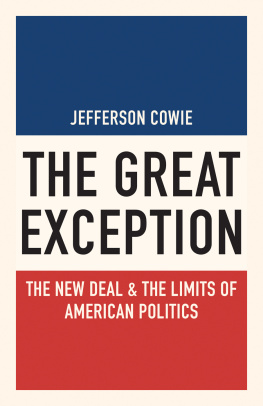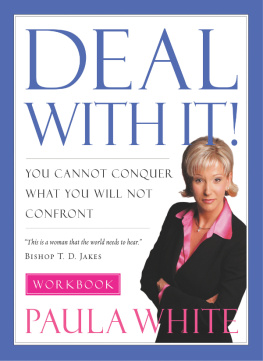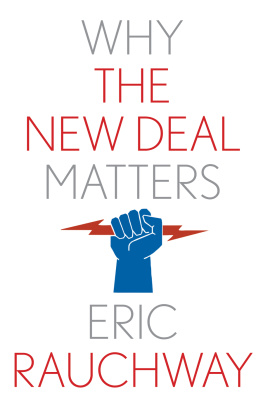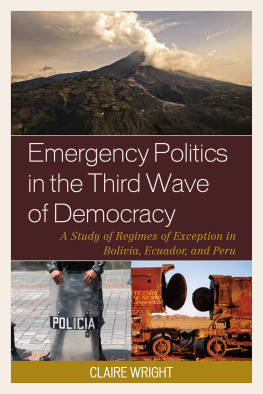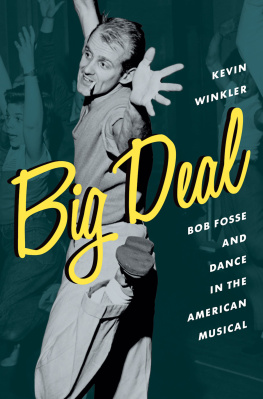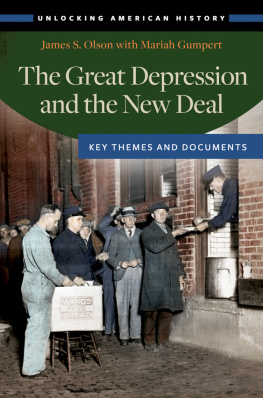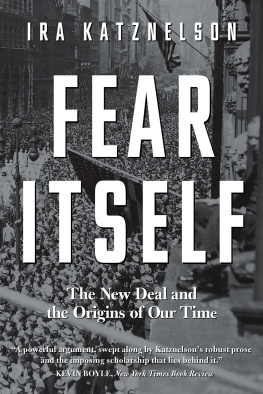New Deal - The great exception: the New Deal & the limits of American politics
Here you can read online New Deal - The great exception: the New Deal & the limits of American politics full text of the book (entire story) in english for free. Download pdf and epub, get meaning, cover and reviews about this ebook. City: United States, year: 2017;2015, publisher: Princeton University Press, genre: Politics. Description of the work, (preface) as well as reviews are available. Best literature library LitArk.com created for fans of good reading and offers a wide selection of genres:
Romance novel
Science fiction
Adventure
Detective
Science
History
Home and family
Prose
Art
Politics
Computer
Non-fiction
Religion
Business
Children
Humor
Choose a favorite category and find really read worthwhile books. Enjoy immersion in the world of imagination, feel the emotions of the characters or learn something new for yourself, make an fascinating discovery.
- Book:The great exception: the New Deal & the limits of American politics
- Author:
- Publisher:Princeton University Press
- Genre:
- Year:2017;2015
- City:United States
- Rating:5 / 5
- Favourites:Add to favourites
- Your mark:
- 100
- 1
- 2
- 3
- 4
- 5
The great exception: the New Deal & the limits of American politics: summary, description and annotation
We offer to read an annotation, description, summary or preface (depends on what the author of the book "The great exception: the New Deal & the limits of American politics" wrote himself). If you haven't found the necessary information about the book — write in the comments, we will try to find it.
New Deal: author's other books
Who wrote The great exception: the New Deal & the limits of American politics? Find out the surname, the name of the author of the book and a list of all author's works by series.
The great exception: the New Deal & the limits of American politics — read online for free the complete book (whole text) full work
Below is the text of the book, divided by pages. System saving the place of the last page read, allows you to conveniently read the book "The great exception: the New Deal & the limits of American politics" online for free, without having to search again every time where you left off. Put a bookmark, and you can go to the page where you finished reading at any time.
Font size:
Interval:
Bookmark:

THE GREAT EXCEPTION
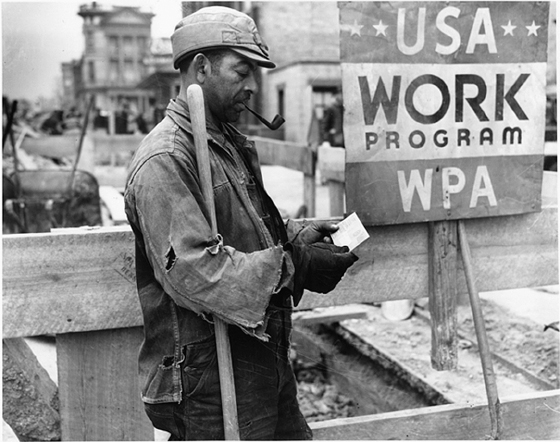
A WPA Employee Receives His Paycheck, 1939.
Courtesy National Archives.
THE GREAT EXCEPTION
THE NEW DEAL & THE LIMITS OF AMERICAN POLITICS
JEFFERSON COWIE
PRINCETON UNIVERSITY PRESS
Princeton and Oxford
Copyright 2016 by Jefferson Cowie
Requests for permission to reproduce material from this work should be sent to Permissions, Princeton University Press
Published by Princeton University Press,
41 William Street, Princeton, New Jersey 08540
In the United Kingdom: Princeton University Press,
6 Oxford Street, Woodstock, Oxfordshire OX20 1TW
press.princeton.edu
All Rights Reserved
Library of Congress Cataloging-in-Publication Data
Cowie, Jefferson.
The great exception : the New Deal and the limits of American politics / Jefferson Cowie.
pages cm Politics and society in twentieth-century America
Includes bibliographical references and index.
ISBN 978-0-691-14380-4 (hardcover : alk. paper) 1. United StatesPolitics and government19331945. 2. New Deal, 19331939. 3. United StatesPolitics and government19451989. 4. LiberalismUnited StatesHistory20th century. 5. Social conflictUnited StatesHistory20th century. 6. Political cultureUnited StatesHistory20th century. 7. United StatesSocial conditions20th century.
E806.C68 2016
973.917dc23
2015024474
British Library Cataloging-in-Publication Data is available
This book has been composed in DIN 1451 Std & Sabon LT Std
Printed on acid-free paper.
Printed in the United States of America
1 3 5 7 9 10 8 6 4 2
FOR NICK,
who taught me history, voice, and friendship
CONTENTS
Philadelphia, 1936
1
Rethinking the New Deal in American History
9
The Question of Democracy in the Age of Incorporation
35
Kaleidoscope of Reform
63
Working-Class Interregnum
91
Constraints and Fractures in the New Liberalism
123
The Great Exception in Action
153
Toward a New Gilded Age
179
The Era of Big Government Is Not Over (But the New Deal Probably Is)
209
ACKNOWLEDGMENTS
231
NOTES
235
INDEX
263
THE GREAT EXCEPTION
PROLOGUE
PHILADELPHIA, 1936
As Franklin Delano Roosevelt made his way to the speakers platform, he had to swing his steel-bound legs forward by thrusting one hip forward and then the other, forcing each, one at a time, between a cane on one side and the supporting arm of an advisor on the other. Even the shortest, most mundane walk involved pain. Simply standing caused grinding aches and exhaustion. On this day, as FDR advanced toward his specially modified podium, he stopped to shake hands, when suddenly the hinge that locked his steel braces at the knee sprang loose. His leg buckled. With his withered limbs unsupported on one side, the president collapsed helplessly to the ground.
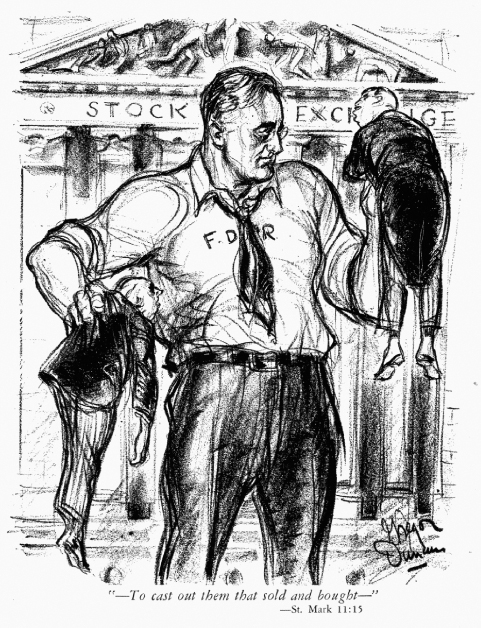
To Cast Out Them That Sold and Bought, 1934. The money changers have fled from their high seats in the temple of our civilization, Roosevelt declared when he took office in 1933. We may now restore that temple to the ancient truths.
Gregory Duncan for Life magazine.
An estimated crowd of 100,000 people packed the stadium before him, clamoring with anticipation for his appearance. Unaware of his fall, the boisterous crowd cheered, cajoled, gossiped, and debated with their neighbors while waiting for the most popular president in memory to accept the Democratic nomination for a second term as president.
The presidents aides dove down to pick him up and dust him off. Clean me up, Roosevelt quickly ordered as they relocked the support and propped his body upright. FDRs open secret was never in such evidencea rare moment of public humiliation for a man who went to great lengths to keep his disability private. The mixture of power and vulnerability suggested much about the moment.
Composure regained, he headed into the lights, the crowd cheering his arrival. He gripped the podium for balance and proceeded to deliver one of the most extraordinary speeches in the history of presidential rhetoric. The crowd at Philadelphias enormous Franklin Field stadium punctuated FDRs orations with thunderous approval as he accepted not just his partys nomination but also command of a war. It was not the foreign conflict to come that he sought to lead, but a battle cry to recover the lost territory of democracy from the monarchical powers of industry.
From the rostrum, FDR connected his location in historic Philadelphia with his urgent political message. The enemy was not the aristocracy of old but a new breed of economic royalists who threatened the nations political traditions. The government was no longer the peoples, but had succumbed to the privileged princes of these new economic dynasties, thirsty for power who sought control over Government itself. The political equality we once had won, he boomed, had been rendered meaningless in the face of economic inequality. He shamed those who argued that the New Deal would overthrow the institutions of America. Quite the opposite, he emphasized: the very preservation of American institutions requires the overthrow of this kind of power.
In rhetoric that might have been delivered by a turn of the century socialist, an agrarian populist, or a radical union organizer, FDR defamed the new monarchs who had carved out new dynasties and a new despotism and established an economic tyranny that was cloaked in legal sanction. The new industrial order now dwarfed the once celebrated democratic power of the people. The hours men and women worked, the wages they received, the conditions of their labor, he lamented, had passed beyond the control of the people, and were imposed by this new industrial dictatorship.
The most profound dimensions of that speech struggled to reformulate the American preoccupation with liberty and individualism. Looking to a new understanding of that powerful creed, FDR sought, in both his platform and his speech, to create a new definition of individualism that rested upon economic security. Liberty requires opportunity to make a livinga living decent according to the standard of the time, a living which gives man not only enough to live by, but something to live for. Under this new vision, this New Deal, the government could play a role that would overthrow, once and for all, the antiquated notion that the state existed simply to protect the citizenry from incursions on their individual freedoms. Instead, government would help provide the types of economic foundations that empowered the people to enjoy those freedoms. Quoting an eighteenth-century English judge, he declared, Necessitous men are not free men.
Moving toward his formal acceptance of the nomination, he most famously declared, This generation of Americans has a rendezvous with destiny. Battle lines drawn, he lifted his arm forward and upward, palm open, leaving himself precariously balanced with only one hand to prevent another fall. Seeming to defy, even taunt, the collapse that had nearly humiliated him minutes earlier, FDR boldly committed himself to a war against want and destitution and economic demoralization and for nothing short of the survival of democracy. I accept the commission you have tendered me, he exclaimed with his soaring, stiff-jawed, accent. I join with you. I am enlisted for the duration of the war.
Next pageFont size:
Interval:
Bookmark:
Similar books «The great exception: the New Deal & the limits of American politics»
Look at similar books to The great exception: the New Deal & the limits of American politics. We have selected literature similar in name and meaning in the hope of providing readers with more options to find new, interesting, not yet read works.
Discussion, reviews of the book The great exception: the New Deal & the limits of American politics and just readers' own opinions. Leave your comments, write what you think about the work, its meaning or the main characters. Specify what exactly you liked and what you didn't like, and why you think so.

